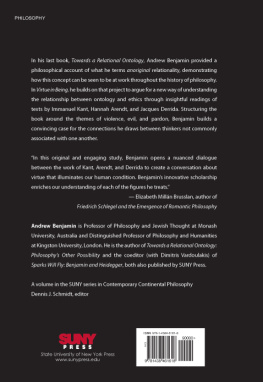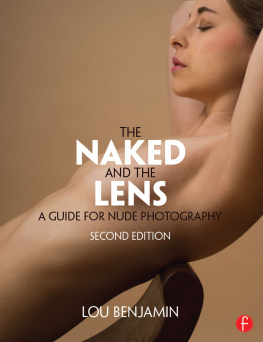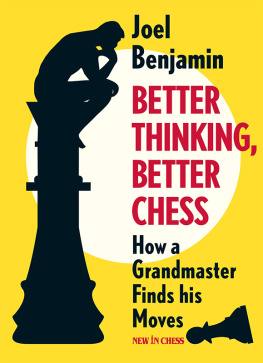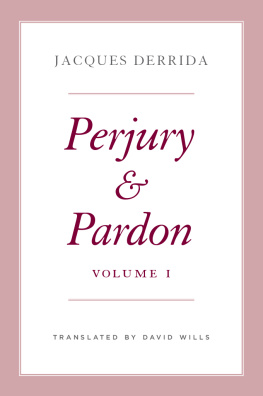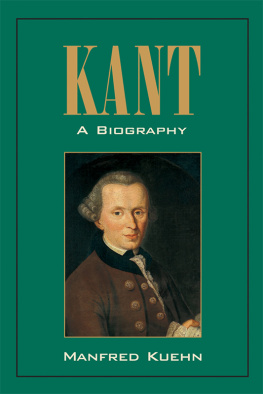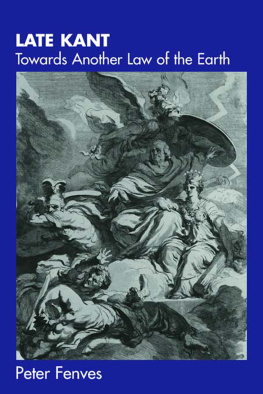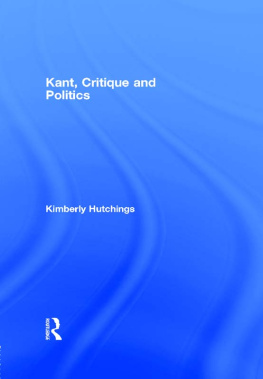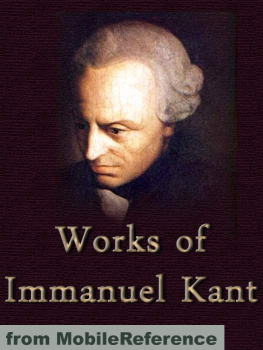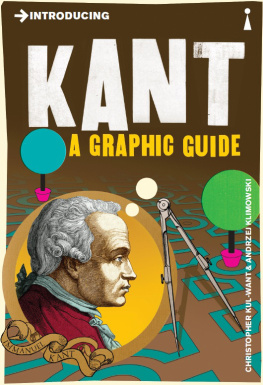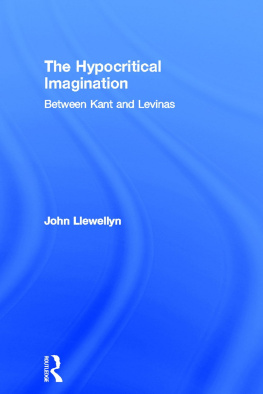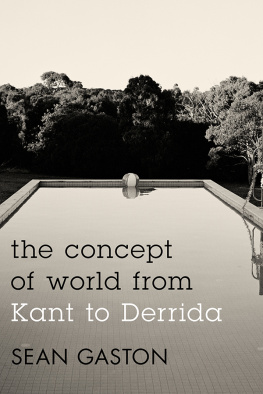VIRTUE IN BEING
SUNY series in Contemporary Continental Philosophy
Dennis J. Schmidt, editor
VIRTUE IN BEING
Towards an Ethics of the Unconditioned
ANDREW BENJAMIN
Published by State University of New York Press, Albany
2016 State University of New York
All rights reserved
Printed in the United States of America
No part of this book may be used or reproduced in any manner whatsoever without written permission. No part of this book may be stored in a retrieval system or transmitted in any form or by any means including electronic, electrostatic, magnetic tape, mechanical, photocopying, recording, or otherwise without the prior permission in writing of the publisher.
For information, contact State University of New York Press, Albany, NY
www.sunypress.edu
Production, Diane Ganeles
Marketing, Michael Campochiaro
Library of Congress Cataloging-in-Publication Data
Names: Benjamin, Andrew E.
Title: Virtue in being : towards an ethics of the unconditioned / Andrew Benjamin.
Description: Albany : State University of New York Press, 2016. | Series: SUNY series in contemporary Continental philosophy | Includes bibliographical references and index.
Identifiers: LCCN 2015036642| ISBN 9781438461618 (hardcover : alk. paper) | ISBN 9781438461632 (e-book)
Subjects: LCSH: Ethics. | Philosophical anthropology.
Classification: LCC BJ41 .B46 2016 | DDC 170--dc23 LC record available at http://lccn.loc.gov/2015036642
10 9 8 7 6 5 4 3 2 1
CONTENTS
ACKNOWLEDGMENTS
T he chapters of this book were first delivered as lectures at the Collegium Phenomenologicun held at Citta di Castello, Italy, in July 2014. I wish to thank Mara del Rosario Acosta Lpez for the kind invitation to give a weeklong course. I have allowed the book as it now stands to retain the overall structure of the lectures. During the writings of the lectures and during the preparatory study conversations and critical exchanges with friends and colleagues were fundamental. Let me thank Kristie Sweet, Ted George, Peg Birmingham, Claire Katz, Rick Lee, Simon Morgan Wortham, Howard Caygill, Elina Steikou, Dimitris Vardoulakis, Dennis Schmidt, and Miguel de Beistegui. I also want to thank James Kent for his help in the preparation of the manuscript.
INTRODUCTION
T he address of this book is straightforward. It involves the argument that a philosophical thinking of life, and thus the development of a philosophical anthropology in which human being is present as an entity within a generalized relational ontology, should be premised on the identification of an already present and thus original relationship between the ontological and the ethical. The uncovering of the relationship, a relationship that has an existent reality, would be the identification of its effective presence. In other words, the identification of a relationship that has an already present structuring force within philosophy. There are therefore two opening claims. The first affirms the presence of this formulation of the relationship between the ethical and the ontological. The second is that the possibility of the relationships recovery indicates that it has always been at work within the history of philosophy, even if it awaited recognition rather than its exercise being an automatic and, as a consequence, its results already determined. Allowing for its presence gives rise to a different approach to the ethical. Rather than uncovering ways of connecting the ontological and the ethical, what their already existent relation identifies is the presence of what will henceforth be described as virtue in being . Staged by this formulation is the anoriginal inscription of the ethical within the ontological. While this is a position that will continue to be made, the argument is that the ethical is not a contingent addition to the ontological. Rather the ontological is already the site of the ethical. That already present status is identified by the claim of an already present, hence anoriginal , inscription.
The term anoriginal is fundamental to this project. It has two interrelated determinations that are at work here. First, it bears an important connection to Derridas term diffrance . singularity therefore would be an after effect of the relation. Irreducibility is original. Anoriginal difference names this irreducibility. The occurrence of any one instance is the event of plurality. The plural event names therefore a setup in which any one singularity is marked by its being the aftereffect of an original relation. (Hence anoriginal relationality.)
The second determination of the term anoriginal concerns origins. It signals a way of denoting the presence, and thus the being, of that which is always already at work (where work involves the distinction between potentiality and actuality). Again, the affinity with Derrida is clear. To argue for the anoriginality of a relation is therefore to assume both irreducibility and the already present status of that relation. Equally, it is possible to deploy the term anoriginal to identify the already present. Again this underscores that what is at stake in every instance is an account of existence, of what exists and thus the ontological. Accepting anoriginality as a point of departureand therefore as its own an-originmeans that the philosophical task entails accounting for the work of the anoriginal rather than offering an account of its origin. Centrality is to be attributed therefore to the effect of anoriginal presence: a presence that defines the origin in terms of an already present effecting relation.
Relationality is an already present force; a force that continues to take on different forms. Note the following two moments both of which need to be understood as an affirmation of the being of being human as being-in-relation . that will be noted are three elements. The first is that what the dialectic of recognition identifies is, inter alia, that were self-consciousness to be posited as a singularity then such a position would be an aftereffect of an original relation. Consistent with the position noted above, implicit in the formulation of this position is that relationality precedes singularity. The second is that being acknowledged and the jostlings of equality are activities. Relationality therefore is that is, is what it isin its being acted out. In being acted out, an acting out that is marked by an inevitable contingency as to content, the relationship between potentiality and actuality is brought into play. Third, what are described as just opinions, understood as both accurate opinions and an opinion of human being as bound up with both a sense of propriety and thus a sense of justice, occur as a result of activity and are given within reflection. Life and the just life delimited by an original sense of propriety have a possible and thus potential coincidence. A coincidence the setting of which has to be this life and which underscores the presence of what has already been identified as virtue in being . The coincidence is not a fait accompli. It actualization continues to meet sites of resistance. Resistance in this context is that which inhibits or restricts the actualization of a potentiality. They can be identified as the disequilibria of power that play a structuring role within relationality.


